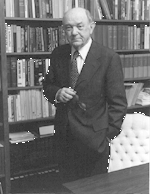American Foreign Policy and International Law
| By Dean Rusk* |
 |
South Vietnam's Right of Self Defense:
Vietnam presents a clear current case of the lawful versus
the unlawful use of force. I would agree with General Giap
and other communists that it is a test case for "wars of
national liberation". We intend to meet that test.
Were the insurgency in South Vietnam truly indigenous and
self-sustained, international law would not be involved.
But the fact is that it receives vital external
support - in organization and direction, in training, in
men, in weapons and other supplies. That external support
is unlawful for a double reason. First, it contravenes
general international law, which the United Nations
Charter here expresses. Second, it contravenes particular
international law: The 1954 Geneva accords on Vietnam
and the 1962 agreements on Laos.
|
In resisting the agression against it, the Republic of
Vietnam is exercising its right of self defense. It
called upon us and other states for assistance. And in
the exercise of the right of collective self defense
under the United Nations Charter, we and other nations
are providing such assistance.
The American policy of assisting South Vietnam to maintain
its freedom was inaugurated under President Eisenhower
and continued under Presidents Kennedy and Johnson. Our
assistance has been increased because the agression from
the North has been augmented. Our assistance now encompasses
the bombing of North Vietnam. The bombing is designed to
interdict, as far as possible, and to inhibit, as far as
may be necessary, continued agression against the Republic
of Vietnam.
When that aggression ceases, collective measures in defense
against it will cease. As President Johnson has declared:
...if that aggression is stopped, the people and
Government of South Vietnam will be free to settle their
own future, and the need for supporting American military
action there will end...
Nature of struggle in Vietnam:
I continue to hear and see nonsense about the nature of
the struggle there. I sometimes wonder at the gullibility
of educated men and the stubborn disregard of plain facts
by men who are supposed to be helping our young men
learn - especially to learn how to think.
Hanoi has never made a secret of its designs. It publicly
proclaimed in 1960 a renewal of the assault on South
Vietnam. Quite obviously its hopes of taking over South
Vietnam from within had withered to close to zero - and
the remarkable economic and social progress of South
Vietnam contrasted, most disagreeably for the North
Vietnamese Communists, with their own miserable economic
performance.
The facts about the external involvement have been documented
in white papers and other publications of the Department of
State. The International Control Commision has held that
there is evidence "beyond reasonable doubt" of North
Vietnamese intervention.
There is no evidence that the Viet Cong has any significant
popular following in South Vietnam. It relies heavily on
terror. Most of its reinforcements in recent months have
been North Vietnamese from the North Vietnamese Army.
Let us be clear about what is involved today in Southeast
Asia. We are not involved with empty phrases or conceptions
that ride upon the clouds. We are talking about the
national interests of the United States in the peace of
the Pacific. We are talking about the appetite for
aggression - an appetite that grows upon feeding and that
is proclaimed to be insatiable. We are talking about the
safety of nations with whom we are allied - and in the
integrity of the American committment to join in meeting
attack.
It is true that we also believe that every small state
has a right to be unmolested by its neighbors even though
it is within reach of a great power. It is true that we
are committed to general principles of law and procedure
that reject the idea that men and arms can be sent freely
across frontiers to absorb a neighbor. But underlying the
general principles is the harsh reality that our own
security is threatened by those who would embark upon a
course of aggression whose announced ultimate purpose is
our own destruction.
Once again we hear expressed the views that cost the men
of my generation a terrible price in World War II. We are
told that Southeast Asia is far away - but so were Manchuria
and Ethiopia. We are told that, if we insist that someone
stop shooting, that is asking them for unconditional
surrender. We are told that perhaps the aggrresor will
be content with just one more bite. We are told that,
if we prove faithless on one commitment, perhaps others
would believe us about commitments in other places. We
are told that, if we stop resisting, perhaps the other
side will have a change of heart. We are told to stop
hitting bridges and radar sites and ammunition depots
without requiring that the other side stop its slaughter
of thousands of civilians and its bombings of schools and
hotels and hospitals and railways and buses.
Surely we have learned over the past three decades that
the acceptance of aggression leads only to a sure
catastrophe. Surely we have learned that the aggressor
must face the consequences of his action and be saved
from the frightful miscalculation that brings all to ruin.
It is the purpose of law to guide men away from such events,
to establish rules of conduct which are deeply rooted in the
reality of experience...
*United States Secretary of State, former President of
the Rockefeller Foundation. This selection is part of an
address to the American Society of International Law
(April 23, 1965), in Department of State Bulletin, LII
(May 10, 1965), pp 694-700.
Go back to Documents
Added 10/19/96
